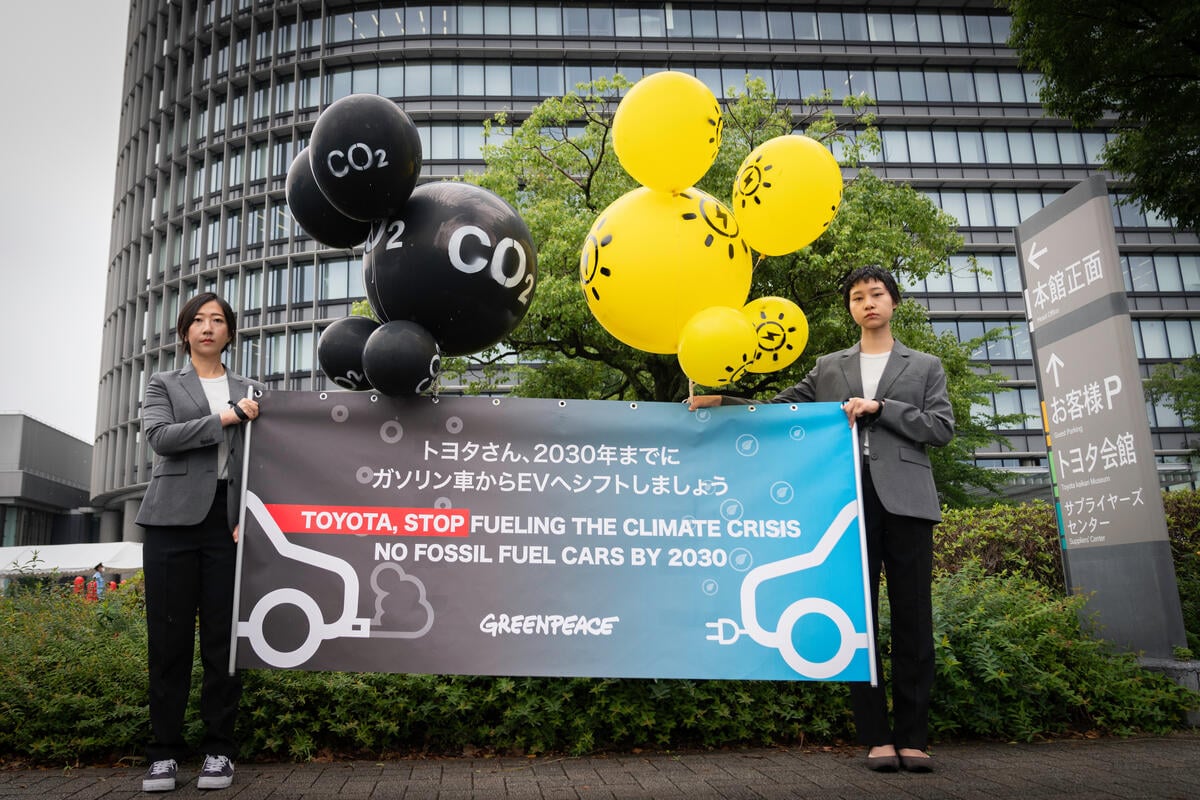July 8, 2024, SEOUL – In a setback to climate efforts, Hyundai’s global emissions increased by 6% in 2023, according to the company’s latest sustainability report, which was quietly uploaded to Hyundai’s website in late June. In addition, unlike Hyundai’s previous sustainability reports, there is no mention of an electrification goal for Genesis.
In response, Greenpeace East Asia campaigner Hyeran Hong said:
“Hyundai’s latest sustainability report reveals a worrisome trend. In 2023, Hyundai’s emissions increased by 8.7 million tonnes, an increase that alone exceeded the total emissions of Costa Rica. We are facing increasingly intense storms, heatwaves, and droughts – an emissions increase from one of the world’s biggest carmakers is not good news.
Although Hyundai is often seen as a leader in electrification, the latest sustainability report tells a different story. In 2023, 93.5% of Hyundai vehicles sold contained an internal combustion engine. Hyundai’s continued reliance on fossil fuel vehicle sales poses a serious threat to our climate.
Another noteworthy element of this year’s sustainability report is that it contains no mention of Genesis’ electrification goal. In 2021, Hyundai announced that all new Genesis vehicles launched in 2025 or later would be fully electric vehicles (battery EVs and fuel cell EVs). Since then, each year Hyundai has included the goal of ‘100% Electrification of Genesis by 2030’ in its sustainability report, but this year the line is absent.
Instead of racing toward zero emissions, Hyundai has doubled down on hybrids, a sales strategy that is not compatible with full decarbonization. On average, lifecycle emissions from hybrids are just 20.5% less than those from traditional combustion engine vehicles. In 2023, however, Hyundai’s hybrid vehicle sales grew 40.5%, compared to just 16.8% for EVs. [1]
Moreover, in some markets, hybrids face increasing regulatory barriers. In Europe, a ban on the sale of new internal combustion engine vehicles, including hybrids, will go into effect from 2035. An emphasis on hybrids over battery electric vehicles is not a sustainable business strategy in the medium term.
If Hyundai truly wants to achieve its goal of carbon neutrality, it must shift its focus toward battery electric vehicles. The goal should be for Hyundai to set ambitious EV sales targets consistent with its strategy to be a first mover in electrification. In parts of the world, the annual temperature increase has already surpassed 3 degrees Celsius. The world needs Hyundai and other automakers to stop selling fossil fuel vehicles in all markets by 2030 at the latest.”
END
Notes
[1] Source: Greenpeace compilation based on data from Marklines
Media Contact
Erin Newport, International Communications Officer, Greenpeace East Asia +886 958 026 791, [email protected]
Elizabeth Lee, Communications Officer, Greenpeace East Asia (Seoul), +82 10 8394 0206, [email protected]



